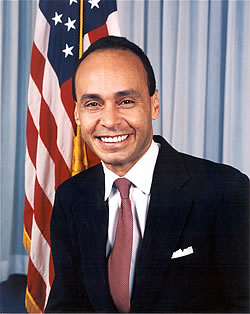STRIVE Act of 2007

Representatives Luis Gutierrez (D-IL)
(Wikimedia Commons)
Current Status: Referred to committee. No major action taken.
After Congress' failed to pass comprehensive immigration reform in 2006, Representatives Luis Gutierrez (D-IL), Jeff Flake (R-AZ), and 28 additional House members sponsored a revised piece of comprehensive reform legislation in 2007. The new bill addressed many of the same issues as the 2006 bill. Called the Security Through Regularized Immigration and a Vibrant Economy Act (STRIVE Act), this bill would address concerns from different sides of the unauthorized-immigration debate.
The STRIVE Act would target major areas of immigration reform. It would enhance enforcement of immigration laws at the borders and ports of entry to the United States. This would include training Border Patrol officers in document fraud detection and increasing cooperation with the Mexican government to address border security and drug trafficking issues. The bill would also enhance interior enforcement (within the United States) by creating new immigration penalties for persons convicted of gang-related crimes and multiple drunk-driving offenses. The bill would also make the federal government reimburse state governments for costs related to incarcerating unauthorized immigrants.
The bill would create a new guest-worker program. Under this system, up to 400,000 workers annually would be able to receive H-2C visas allowing them to enter the United States and work legally for three years at a job paying the "prevailing wage." Guest workers could renew their visas for an additional three years. Applicants to the program would have to provide proof of a job offer, submit to background checks and a medical exam, pay a $500 application fee, and be "admissible" (free from criminal convictions that would bar authorized immigration).
Significantly, the bill would provide a system for unauthorized immigrants to become citizens. The bill would create a "touchback" system, in which persons residing unlawfully in the United States would have to temporarily leave the country and then re-enter lawfully. Under a section titled "Legalization of Undocumented Individuals," unauthorized immigrants residing in the United States could achieve "conditional nonimmigrant" status and work legally within the country. An applicant for this status must show proof of having resided in the United States prior to June 2006. Persons not present before that date would not be eligible. An applicant would also have to undergo a security check, pay a $500 fine, and be "admissible."
Pros and Cons
Rep. Jeff Flake described the bill as a way of addressing everyone's concerns about immigration. That includes both proponents of unauthorized immigrant rights and proponents of stricter immigration laws. "It tackles the major components necessary for reform to be effective," Flake stated in 2007, including "border security, interior enforcement, a mechanism for foreign workers to enter the country legally, and no amnesty for illegal immigrants." Under the STRIVE Act, people entering the country with "sinister motives" would be distinguished from those who "simply want to work," according to Flake.
Flake's co-sponsor, Rep. Luis Gutierrez, argued that the bill contained major humanitarian as well as economic safeguards. The guest worker component would match "willing foreign workers with jobs which most Americans will not fill while allowing the border patrol to concentrate on stopping criminals such as drug traffickers to enter our borders." Meanwhile, according to Gutierrez, the bill would "minimize tragedy and death on our borders" by requiring the development of "information-sharing, international and federal-state-local coordination, technology, anti-smuggling and other actions to secure the borders."
The STRIVE Act had various critics. In Congress, Rep. Tom Tancredo (R-CO) was a vocal opponent of the Act's "touchback" provision. "It doesn't say you have to go to the country of origin," Tancredo said, "You just have to go out of the country a little bit. It's a vacation." Tancredo said bluntly, "It's idiotic."
James Sherk of the Heritage Foundation further criticized the economic provisions of the act. One such provision would require employers to pay the "prevailing wage" to the new guest workers. "[T]he market already compels businesses to pay the market wage," he argued, "because guest workers can switch employers." Therefore, the provision is redundant. In addition, Sherk argued, the prevailing wage requirement would make the labor market more rigid and "open the door" to expensive lawsuits against employers. High wages in one area of the economy (such as home construction) show that jobs in that area are in high demand. High-wage jobs are also fewer in number than low-wage jobs. "Wage flexibility," Sherk stated, "sends workers to the jobs that most need filling, keeping the economy growing." Finally, companies could face lawsuits under the STRIVE Act for violations of the prevailing wage provision. Sherk called these lawsuits "frivolous."

For Discussion
1. STRIVE is a bill that tackles many issues of immigration reform. In your opinion, do you think it is better to have such a comprehensive immigration reform bill? Or, would it be better for reform to come piece-by-piece in many separate laws rather than one comprehensive law?
2. Assume James Sherk's criticisms of the prevailing wage provision are true. Do you think it would be acceptable to have a flawed immigration bill so long as it increases border security and creates a path to citizenship for unauthorized immigrants? Why or why not?
Outside Links
Jeff Flake's testimony on the STRIVE Act


